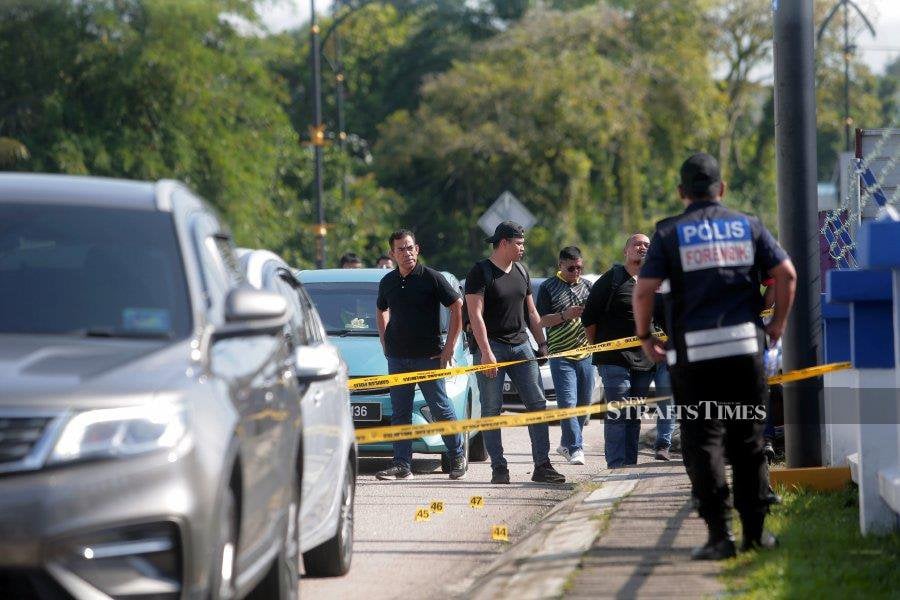ULU Tiram, a sleepy village, is headline news around the world. Again. A predawn attack was launched on a police station there on Friday, killing two policemen and injuring one.
The attacker rode his motorcycle to the back of the police station unnoticed. He had a home-made bulletproof vest of metal sheets, zinc and hard objects.
There, he fatally slashed a constable with a parang, shot dead another, slashed the neck of yet another before being killed by the injured constable. The police arrested five family members of the dead suspect in a raid on his home, where Jemaah Islamiyah (JI)-related paraphernalia was found. The suspect's father is said to be an active member of JI.
It was at first thought the JI was involved in the attack. But the inspector-general of police says the suspect was not a member of JI.
Analysts trace JI's roots to Indonesia of the 1940s when the radical movement was birthed to create a superstate for all of Southeast Asia. That dream got transferred to Malaysia in the early 1990s when Indonesian JI leaders Abdullah Sungkar and Abu Bakar Bashir fled here after massive crackdowns were launched against the militant movement.
Once here, the two groomed a local offshoot, Kumpulan Militan Malaysia, through a school they set up in Ulu Tiram. The discovery of JI paraphernalia in the home of the suspect indicates the superstate dream is very much alive.
We welcome Malaysia's the concerted action being taken by the police and others to stamp out terrorism. The police have tightened security at all police stations, making it a little inconvenient for people to seek police help there.
But security always comes at a price. Asean nations, too, must act in concert. It is very clear that militancy that starts in one Southeast Asian country doesn't just stay there. It cross-pollinates militants from Indonesia, Malaysia, Singapore, Thailand and the Philippines, as one media article put it. Nab a stripe in Jakarta, another appears in Ulu Tiram.
Imprison them in Singapore, several others appear in Thailand. JI, which is often linked to al-Qaeda, is a menace not only because it is affiliated to other militant groups, but also because it sprouts cells in the region. Militancy multiplies in many ways, especially where borders are porous. Cross-border cooperation must now top the Asean agenda. This is not to raise an unnecessary alarm.
Remember the suicide bombings on July 17, 2009 at two luxury hotels — JW Marriott and Ritz-Carlton — in Jakarta? Seven died in the attack. Marriott suffered an earlier bomb attack in 2003, when 12 people were killed and 150 injured.
In 2005, it was the turn of two tourist sites in Bali, where 26 people were killed. All this points to one thing: Asean nations, acting individually, are good at taming terrorism, but not removing it.
They must work in concert to remove it. No nation is an island, especially the Southeast Asian ones.


